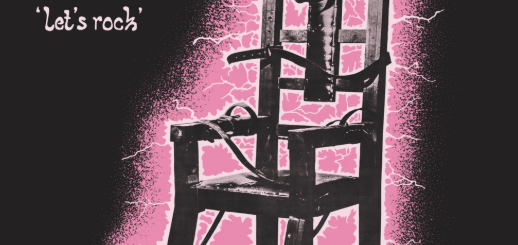When The Lights Go Out by The Black Keys Lyrics Meaning – Decoding the Shadows of Human Complexity
- Music Video
- Lyrics
-
Song Meaning
- The Intensity of Sunlight and Shadow: A Juxtaposition of Love and Indifference
- A Backseat to Normalcy: Unveiling the Outcast’s Narrative
- Striking Solitude: Navigating the Loneliness of ‘Lonely Seats’
- Peering into the Abyss: The Song’s Hidden Psychological Layers
- Lingering Lines: Unforgettable Lyrical Moments
Lyrics
When you’re standin’ in the sun
In the bottom of your heart
You don’t love no one
You can be oh so mean
I just can’t see, no in between
You know what the sun’s all about
When the lights go out
What a way to live
Back of your class
End of the line
Always last
You can be oh so mean
I just can’t see, no in between
You know what the sun’s all about
When the lights go out
See the moon
See the stars
From your lonely seat
In your lonely cars
You can be oh so mean
I just can’t see, no in between
You know what the sun’s all about
When the lights go out
The Black Keys, known for their gritty blues-rock sound, often delve into the complexities of human emotion and experience. ‘When The Lights Go Out’ stands out as a song that wraps pain and introspection in the cloak of minimalist instrumentation and lyrical depth. Rather than simply painting a picture of love gone cold, the song serves as an exploration of the darker recesses of the human soul.
Under the deceptive simplicity of its melody, the song is rich with metaphor and symbolism that demand a closer look. The lyrics provide a canvas for emotional resonance, reflecting on personal introspection and the universal human condition. Let’s dissect the haunting poetry draped in Dan Auerbach’s soulful vocal delivery and Patrick Carney’s pulsating drumbeats.
The Intensity of Sunlight and Shadow: A Juxtaposition of Love and Indifference
The vivid imagery of standing in the sun while feeling an emotional void sets a powerful scene. The lyrics ‘Don’t it hurt so bad / When you’re standin’ in the sun / In the bottom of your heart / You don’t love no one’ suggest a stark contrast between the warmth of the sun and the coldness within. It paints a picture of someone who is outwardly exposed to life’s vibrancy but feels nothing but numbness inside, hinting at a painful internal conflict between what is shown and what is truly felt.
The duality of these sensations speaks to a broader human experience—how often we may find ourselves in places where we are expected to feel one way, yet our internal reality is starkly different. It’s a reminder of how one can be surrounded by light and still be engulfed by darkness, probing into the complexity of emotions and human connections.
A Backseat to Normalcy: Unveiling the Outcast’s Narrative
The lines ‘What a way to live / Back of your class / End of the line / Always last’ offer a bleak perspective on societal standing and personal fulfillment. By situating the subject at the back of the class and the end of the line, the song invites us to ponder the life of an individual lagging in the social hierarchy, perhaps an outcast or someone who has resigned themselves to a lesser fate.
The Black Keys manage to encapsulate a sense of alienation and defeatism that resonates with many. It’s a striking snapshot of the human condition wherein one passively accepts their place rather than struggling for change. The narrative here may indicate a disillusionment with social mobility or the pointlessness of endeavoring for a more esteemed position in the eyes of others.
Striking Solitude: Navigating the Loneliness of ‘Lonely Seats’
Human isolation is a theme beautifully rendered in the lines describing solitary confinement within one’s vehicle, staring at the celestial bodies. ‘See the moon / See the stars / From your lonely seat / In your lonely cars’—these words extend beyond physical loneliness, touching the emotional distance one might feel even when surrounded by others or engrossed in daily life.
The notion of sitting alone in a car and looking up at the night sky could conjure a sense of introspection, a moment of peace within the chaos. Yet the repetition of ‘lonely’ underscores a pervasive solitude that can be felt in the presence of something as expansive and breathtaking as the universe. It’s a compelling visual that signals a disconnect not only from other people but from the awe-inspiring elements of life as well.
Peering into the Abyss: The Song’s Hidden Psychological Layers
On a deeper level, ‘When The Lights Go Out’ may very well serve as an allegory for depression or an existential crisis. It touches on the idea that the ‘lights,’ metaphorical for joy, hope, or passion, can ebb away, leaving one to confront the void within—a place where the middle ground has faded, and only extremities exist.
The absence of nuance, mentioned in the lyrics ‘You can be oh so mean / I just can’t see, no in between,’ implies an internal extremity devoid of the shades of grey that often characterize human emotion. This black-and-white thinking, where someone is either completely sunlit or plunged into darkness, resonates with the psychological experience of those grappling with emotional upheaval.
Lingering Lines: Unforgettable Lyrical Moments
The most memorable line of the song, ‘You know what the sun’s all about / When the lights go out,’ echoes repeatedly throughout, cementing its importance. It’s a paradoxical statement that prompts listeners to consider the true nature of brightness—and, by extension, happiness and fulfillment—only in the absence of light.
‘When the lights go out’ reads as a metaphor for understanding, a moment of clarity that strikes in the silence and darkness. It’s an invitation to appreciate warmth, light, and life in their transient beauty, becoming an echoing mantra of understanding life’s worth only after experiencing its potential absence. Such poignant moments in lyricism stand as a testament to the power of The Black Keys to create music that lingers long after the final chord.








